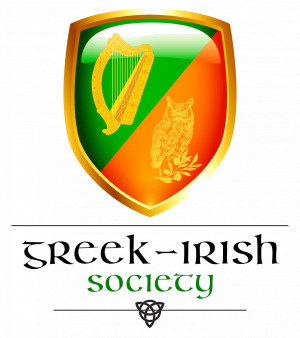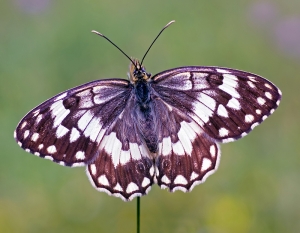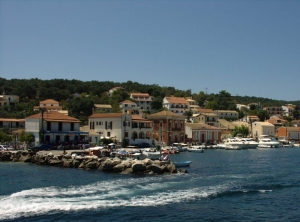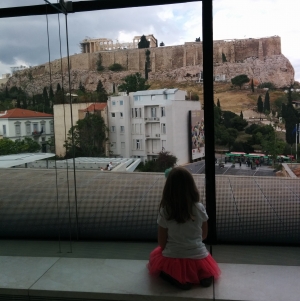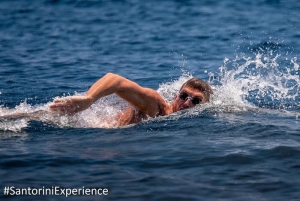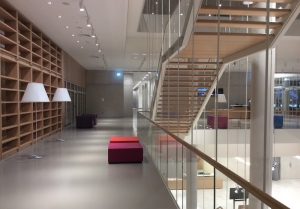The Greek national open water swimming team will be in Santorini this October under the auspices of the Hellenic Swimming Federation!
Additional flights to Santorini and unique offers for the participants in the event! The best island in the world, according to many established travel magazines and reviews of millions of travelers, will become a point of reference of all the visitors from Greece and abroad this October!
‘Santorini Experience’ that focuses once more in the activities of running and swimming, is strategically promoting the island of Santorini as destination, by offering significant benefits and privileges to those wishing to travel for the event on October 7-9 2016!
Great names from our Greek national open water swimming team that made us really proud during Rio 2016 Olympic Games, will give a dynamic presence at this year's event! Among them, the recent Silver Olympic Medalist winner and World Champion in open water swimming, Spiros Gianniotis, the World Champion in open water swimming, Kelly Araouzou and top athletes of the open water swimming such as Antonis Fokaidis, Giorgos Arniakos and Dimitris Negris, will all attend ‘Santorini Experience 2016.’ The first sports tourism event that will be held under the auspices of the Hellenic Swimming Federation.
Due to overwhelming demand for ‘Santorini Experience,’ Ryanair as the official airline partner added 5 extra flights on its Athens - Santorini service on the 4th, 6th, 8th, 11th and 13th of October with special fares starting from only 19,99€ which are valid from September 1st.
These seats are available for booking on the Athens-Santorini route only from Thursday 1 of September to Sunday 4 of September (until midnight) for traveling between 4 to 13 of October. Since these amazingly low prices will be snapped up quickly, those interested in joining the event as active participants should log into www.ryanair.com and avoid missing out as this is the third flight added by Ryanair which is also expected to be fully booked soon as the previous two.
Registrations in swimming and running continue with an undiminished pace- through the official page of the event in the following link:
http://activemedia.com.gr/product/santorini-experience-2/ or alternatively at Alafouzos Sport store at Fira (in Santorini), the official sponsor of the event supporting it for a second consecutive year.
For your access to the island by ferry, there is always the option of Blue Star Ferries. Participants, supporters, and the spectators of ‘Santorini Experience’ will be able to travel for one more year with the safety and comfort of Blue Star Ferries. The top Greek shipping company will offer 50% discount on ferry tickets to those wishing to visit the event and the island between 6 to 10 of October.
In addition, for the second consecutive year, athletes and organizers will move with the safety and efficient engines of the cars of Ford Motor Hellas, the official supporter of ‘Santorini Experience.’
The athletes who will take part in the event will also have the opportunity to quench their thirst with the Natural Mineral Water “Vikos” that contributes to the good functioning of the body during sports.
Once you reach the beautiful island of Cyclades, or a little bit earlier to make the right planning, rent your car from Avance Rent A Car, the official car rental company of ‘Santorini Experience,’ that will serve you with one of the fastest growing car rental networks with presence in all major airports in Greece and Cyprus. Τhe car rental company Avance Rent A Car, as an official supporter of the event, can deliver your car at the airport, the port or directly to your hotel. So do not hesitate to contact Avance Rent A Car, to receive 15% discount on your car rental, during the days of the event.
Unroll the incomparable beauty of Santorini at sea with Santorini Yachting Club an established yacht charter company with experienced captains!
The event will receive the additional support of Aqua Vista Hotels, Saucony, Arena and Passagio Santorini.
‘Santorini Experience’ will be held under the auspices of the Greek National Tourism Organization and the Hellenic Swimming Federation and will receive the international promotion of FOX Sports TV network of FOX Networks Group, participating in this year's event as the Official Broadcaster.
Combine sports with tourism and take advantage of your stay in one of the hospitality sponsors of the event. For more information please address your request to Aqua Vista Hotels, Santorini Hoteliers Association, Meltemi Hotels & Resorts, Athina Luxury Suites, Santorini Secret Suites & Spa, Caldera Collection, West East Suites, 270 Oia's View, White Pearl Villas, Central Fira Hotel, Memories Hotel, Loizos Stylish Residencies, Esperas and Sienna Residencies which are available in the following link:
http://santorini-experience.com/event_accommodation_en.html. The page will be daily enriched with new supporters.
‘Santorini Experience’ is a collaboration between the Municipality of Santorini, the Municipal Sports Cultural Environmental Organization of Santorini (D.A.P.P.O.S.) and Active Media Group.
Official Sponsors: Alafouzos Sport, Blue Star Ferries, Santorini Boatmen Union
Official Airline Partner: Ryanair
Official Supporters: Ford Motor Hellas, “Vikos” Natural Mineral Water, Avance Rent A Car, Aqua Vista Hotels, Saucony, Arena, Village Cinemas, Santorini Yachting Club, Passagio Santorini
Official Broadcaster: FOX Sports
Hospitality Sponsors: Santorini Hoteliers Association, Meltemi Hotels & Resorts, Athina Luxury Suites, Santorini Secret Suites & Spa, Caldera Collection, West East Suites, 270 Oia's View, White Pearl Villas, Central Fira Hotel, Memories Hotel, Loizos Stylish Residencies, Esperas, Sienna Residencies
Assisted by: Diana “exoplizein”



